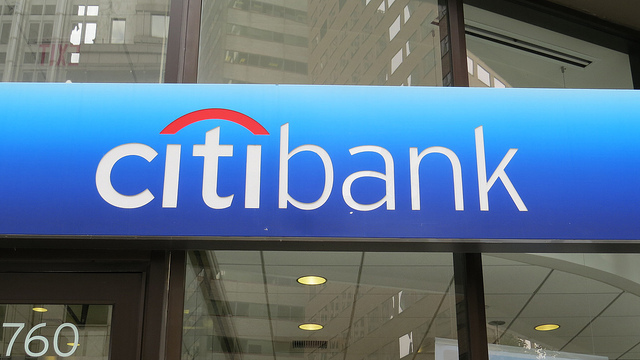 Big banks and alternative online lenders are working together to service all kinds of customers, including small businesses.
Big banks and alternative online lenders are working together to service all kinds of customers, including small businesses.
It would seem like big banks and alternative online lenders would be at odds with each other, fighting over who gets the upper hand in the loan department. But rather than being mortal enemies, these two entities are actually working harmoniously to serve clients needs.
With the rush of various online lending firms popping up all over the place, traditional lending would appear to be heading south. But such is not the case, and an increasing number of conventional financial institutions are continuing to team up with FinTech lenders.
Of course, both sides have their own means of serving their clients, and each has their strengths over the other.
First of all, big banks are highly regulated and have been around for so long that there's an intrinsic level of trust that consumers have with them. There's a certain amount of familiarity and comfort that banks give to consumers, making them feel as if they're the secure choice when it comes to dealing with money. And the typical face-to-face interaction that banks offer clients is unmatched compared the virtual communication with online lenders.
Traditional banks can also
offer clients more affordable loan products compared to alternative loan companies because their cost of funds are much lower. Not only that, but the cost of acquiring new clients and loans can be lower than that of alternative companies, because they're already servicing clients via traditional accounts and credit cards.
Yet despite such advantages, banks are having a tough time competing with the speed, convenience, and decreased regulatory paperwork that alternative lenders are offering. Consumers don't have to meet as many stringent lending criteria with these modern lenders, and the application and approval process has less friction than traditional lenders. Once the loan is approved, funds can be accessed within a couple of days.
These are traits that banks are not able to offer their clients on their own.
Clearly both sides have their impressive strengths. Imagine if two powers worked together? Not only would consumers get the best of both worlds, banks and alternative lenders would benefit as well. It's a win-win.
Working in tandem could meet the financial needs of consumers and small businesses on many points along the credit gamut. Financial entities that embrace this fact will be poised to remain competitive and keep their loan portfolios strong.
 Citibank has recently partnered with Lending Club to boost business and widen services offered to customers.
Citibank has recently partnered with Lending Club to boost business and widen services offered to customers.
Banks don't exactly have the reputation of being quick to adopt change, but as time passes and technology continues to heavily influence the financial service industry, savvy banks and credit unions are increasingly jumping on the bandwagon.
In fact, many banks have started partnering up with fintech firms to act as the originator of loans.
These banks are essentially passing on the origination business to their alternative lending partners, while at the same time retaining the fundamental business from consumers, such as holding bank accounts and loans on balance sheet. Banks are also learning more about the current marketplace, and how technology continues to drive value.
Take
JPMorgan Chase, for instance, which has partnered with alternative lender On Deck. The bank - which is the largest in the US, is collaborating with On Deck Capital in an effort to significantly speed up the lending process to many of the bank's small-business clients.
By working with On Deck, Chase will be able to offer smaller loans in 2016 for small-business clients. Combining Chase's lending experience and customer relationships with On Deck's online platform will allow the bank to provide customers with fast loan approvals and quick funding.
Citibank has also taken a page out of JPMorgan's book. They've partnered up with online marketplace lender Lending Club to offer affordable credit to the underbanked, with the help of Varadero Capital. By doing so, the online lender can add more customers to its database, while Citibank can buy loans that produce acceptable yields based on community reinvestment, cost-effective servicing and data-centered underwriting.
As traditional big banks and alternative lenders continue to partner together, both sides will still work to maintain a clear separation between consumers who are eligible to borrow directly from the bank, and those who would be better off with what online lenders can offer.
Keeping the two entities on their own sides will help avoid any potential conflict while maintaining an amicable working relationship to ensure the greater good for business and clients.
Developing Healthy Relationships Between Banks and Alternative Lenders
Establishing and maintaining a friendly partnership with alternative lenders would be a challenge if not for the assistance of an experienced third party. At Garnet Capital, we're on top of what's happening in the financial services industry, and appreciate what a good working relationship can do for both sides.
We can help both banks and alternative lenders come together seamlessly to provide consumers with what they need, while keeping profits at a healthy level.
Find out more about how Garnet Capital can help your organization stay competitive in this evolving loan market and
sign up for our newsletter today.






